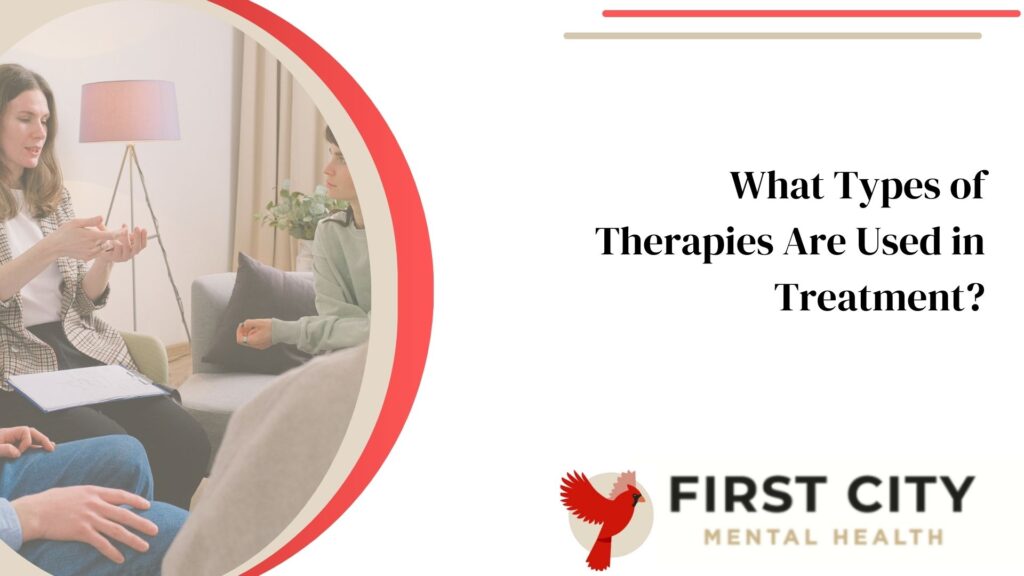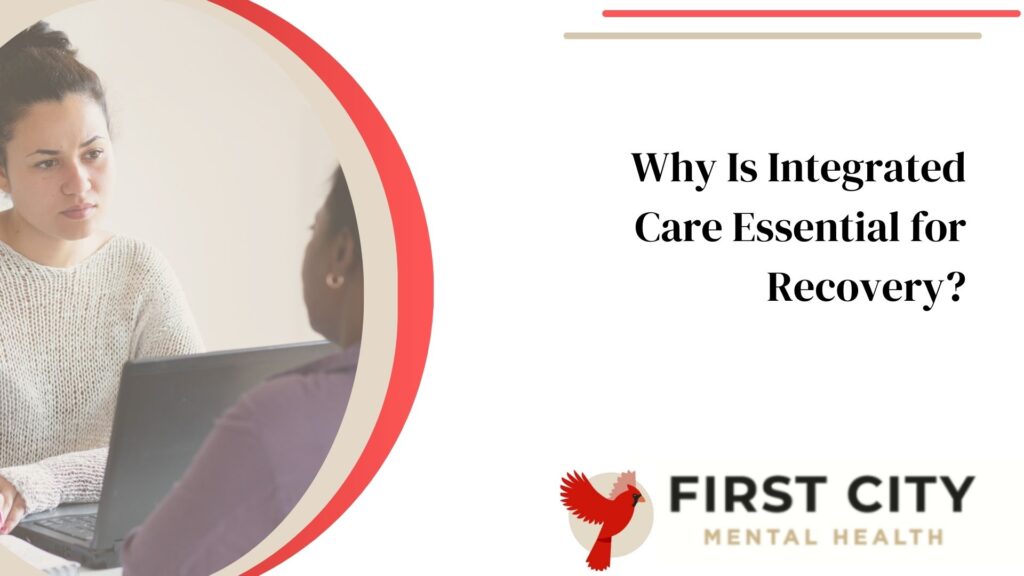
How To Choose The Right Co-Occurring Disorders Treatment Program?
January 21, 2025
Why Early Diagnosis Matters In Co-Occurring Disorders Treatment?
January 21, 2025If you struggle with both a mental health disorder and substance use, you’re not alone. Many people face these challenges at the same time, known as co-occurring disorders. This dual diagnosis often complicates treatment and can increase personal suffering.
Co-occurring disorders need specialized care for effective recovery. The right treatment can make a huge difference in managing both conditions.
We’ll explain co-occurring disorders treatment. You’ll also learn about various therapies and why integrated care is essential for lasting recovery.
Keep reading to get empowered with knowledge for mental illness and mental health services!
Key Takeaways
- Co-occurring disorders are when someone has both a mental health issue and a substance use problem at the same time.
- Early treatment is very important. Delays make both conditions worse.
- Different therapies like CBT, counseling, and medication help treat co-occurring disorders.
- Integrated care treats both issues together for better recovery outcomes.
- Specialized centers in places like Kokomo, Indiana offer targeted help for these combined problems.
Co-occurring disorders, also known as dual diagnosis, mean having both a mental health disorders and a substance use disorder at the same time. Common examples include anxiety disorders, mood disorders like depression or bipolar disorder, personality disorders, and PTSD.
These conditions often need longer treatment durations due to their severity. Individuals with co-occurring disorders may face more significant medical and mental health complications than those with just one condition.
People with co-occurring disorders often experience severe challenges in managing everyday tasks.
Why Are Co-Occurring Disorders Commonly Overlooked?
The complexity of treating both mental health and substance use disorders at the same time often leads to their being overlooked. Stigma surrounding these issues stops many from seeking help.
Many healthcare providers lack training in recognizing co-occurring disorders treatment Kokomo, Indiana, leading to missed diagnoses.
Fragmented healthcare systems can cause disjointed treatment approaches, making it hard to address both problems together. Misconceptions about substance use disorders may hide the need for mental health care.
Lack of public and professional awareness about co-occurring disorders adds to this problem.
How Are Co-Occurring Disorders Diagnosed?
Doctors diagnose co occurring disorders treatment through careful steps. They start with a full evaluation of both mental health and substance use. This includes interviews, questionnaires, and medical history review.
Specialists look for symptoms that affect daily life.
They might use specific tools like the DSM-5 criteria to identify conditions accurately. Sometimes, lab tests help rule out other causes of symptoms. It is important because accurate diagnosis leads to better treatment plans.
When Should Treatment for Co-Occurring Disorders Begin?
Early treatment leads to better outcomes. Delays can worsen symptoms of both disorders. Early intervention improves mental health and addiction management. This means seeking help as soon as possible is crucial.
Early intervention in treatment is critical for better outcomes for integrated treatment for co-occurring disorders.
Professionals should evaluate both conditions together for best results. Next, learn about the types of therapy used in treating co-occurring disorders.
What Types of Therapies Are Used in Treatment?

Treatment should start as soon as co-occurring disorders are diagnosed. Different therapies can be used to help improve mental health and addiction treatment for co-occurring disorders.
- Cognitive-Behavioral Therapy (CBT): Helps with anxiety and depression. Teaches new ways to think and act.
- Counseling: One-on-one or group sessions. Common for treating addictive behaviors.
- Support Groups: Offer peer support. Help individuals feel less alone.
- Psychotherapy: Common for attachment issues. Involves talking about feelings and relationships.
- Behavioral Therapy: Used for Borderline Personality Disorder (BPD). Focuses on changing harmful actions.
- Medication: Often added to therapy plans. Useful for conditions like Major Depressive Disorder (MDD) and Obsessive-Compulsive Disorder (OCD).
Different therapies can work together in an integrated treatment plan for co-occurring disorders treatment programs.
How Does Medication Help in Treating Co-Occurring Disorders?

Medication is important in co-occurring disorders treatment centers. It helps manage mental health symptoms like anxiety and mood swings. Medications such as antipsychotics are used for severe disorders like schizophrenia.
Effective treatment often combines medication with therapy. This dual approach improves outcomes by addressing both mental health and substance use issues. Long-term management may include ongoing medication to maintain stability and prevent relapse.
Where Can You Find Specialized Co-Occurring Disorders Treatment Centers?
Specialized treatment centers for adult co-occurring disorders treatment address both mental health and substance use issues. Kokomo, Indiana offers access to these essential services. These centers provide care customized to the unique needs of patients with dual diagnoses and mental health conditions.
Integrated treatment for co-occurring disorders is vital. Centers offer therapies that treat both conditions together. Now, let’s explore why integrated care is essential for recovery.
Why Is Integrated Care Essential for Recovery?

Finding specialized treatment for co occurring disorders is important. These centers offer the best care for those with both mental health and substance use problems. But why is integrated care essential for recovery?
Integrated care treats both mental health and substance use at the same time. This approach improves outcomes because it addresses all aspects of a person’s health. People with co-occurring disorders often need longer treatment due to more complex challenges.
Understanding how mental health and substance use affect each other helps in effective treatment. Early intervention and complete strategies are crucial. Professionals from different fields work together, improving overall care by using their combined expertise.
Effective adult co-occurring disorders treatment relies on these integrated models to ensure comprehensive support. Integrated care increases the chances of long-term recovery by taking a holistic view of the patient’s needs.
Final Thoughts
Co-occurring disorders treatment program are complex but treatable. They involve both mental health and substance use issues. It’s key to diagnose them early for the best results. Therapy and medication can help manage these conditions together.
Integrated care ensures all aspects get addressed at once. Specialized centers offer targeted support for recovery. Always seek professional help if you or someone you know struggles with co-occurring disorders.
Taking action now can lead to a healthier, happier life.
FAQs
What are co-occurring disorders?
Co-occurring disorders refer to the presence of both a mental health disorder and a substance use disorder in the same person.
How is treatment for co-occurring disorders different?
Treatment for co-occurring disorders involves addressing both conditions simultaneously, often using integrated therapy methods.
Where can I find treatment for co-occurring disorders in Kokomo, Indiana?
You can find specialized centers that offer treatment of co-occurring disorders in Kokomo, Indiana, providing tailored care plans.
Why is integrated treatment important for co-occurring disorders?
Integrated treatment ensures that both mental health and substance use issues are treated together, improving overall outcomes for patients with these complex conditions.






